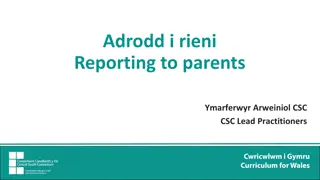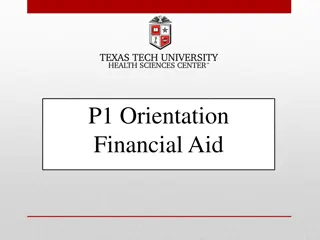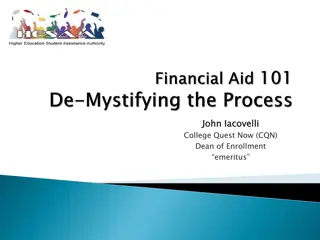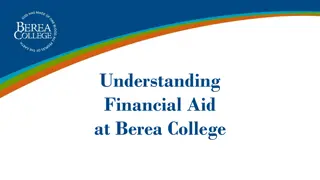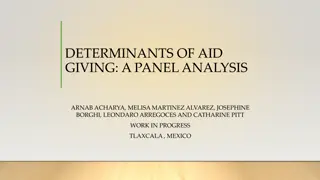
Financial Aid Guide for Dependent Students
Understand the process of determining financial aid eligibility for dependent students based on parental situations such as marital status, living arrangements, and financial support. Learn how to navigate FAFSA requirements effectively.
Download Presentation

Please find below an Image/Link to download the presentation.
The content on the website is provided AS IS for your information and personal use only. It may not be sold, licensed, or shared on other websites without obtaining consent from the author. If you encounter any issues during the download, it is possible that the publisher has removed the file from their server.
You are allowed to download the files provided on this website for personal or commercial use, subject to the condition that they are used lawfully. All files are the property of their respective owners.
The content on the website is provided AS IS for your information and personal use only. It may not be sold, licensed, or shared on other websites without obtaining consent from the author.
E N D
Presentation Transcript
Dependent v. Independent A "dependent" student may have one or two financial aid parents. "independent" students do not include parent information on the FAFSA. We will work through the possible parent scenarios for dependent students in this slide deck.
Married? Living Together? First, we ask about the parent's marital status and living arrangements. If the parents are married, or if they are not married but live together, the student has two financial aid parents, and will report information from both parents on the FAFSA.
Financial Support If the student's parents are not married and do not live together, we ask which parent provides the greater portion of the student's financial support, even if the student does not live with that parent.
If Support is Equal If parents feel that they both contributed equally, we can consider questions such as who provides health insurance? Who has paid for "extras" such as a sport or a car? If the result is that each parent contributed equally, then choose the parent with the greater income and assets.
It doesnt matter where you live NOTE: we no longer consider which parent the student has lived with the most. This is no longer part of the determination
Single Parent Once we have determined which parent provides the most financial support, we will include that parent's information on the student's FAFSA. If this parent is single, they are the only parent who will provide information.
Married Parent + Current Spouse If the parent who provides the most financial support is currently married, then their current spouse's information must also be included on the student's FAFSA.
Contributors If the parent and current spouse submitted separate tax returns, the current spouse will be considered a contributor to the FAFSA.
Not parents unless they adopted the student: Grandparents, Foster Parents, Legal Guardians, Other Family, Widowed Stepparent One more important piece of information is that grandparents, foster parents, legal guardians, aunts, uncles, siblings and widowed stepparents are not considered parents on the FAFSA unless they have legally adopted the student.



